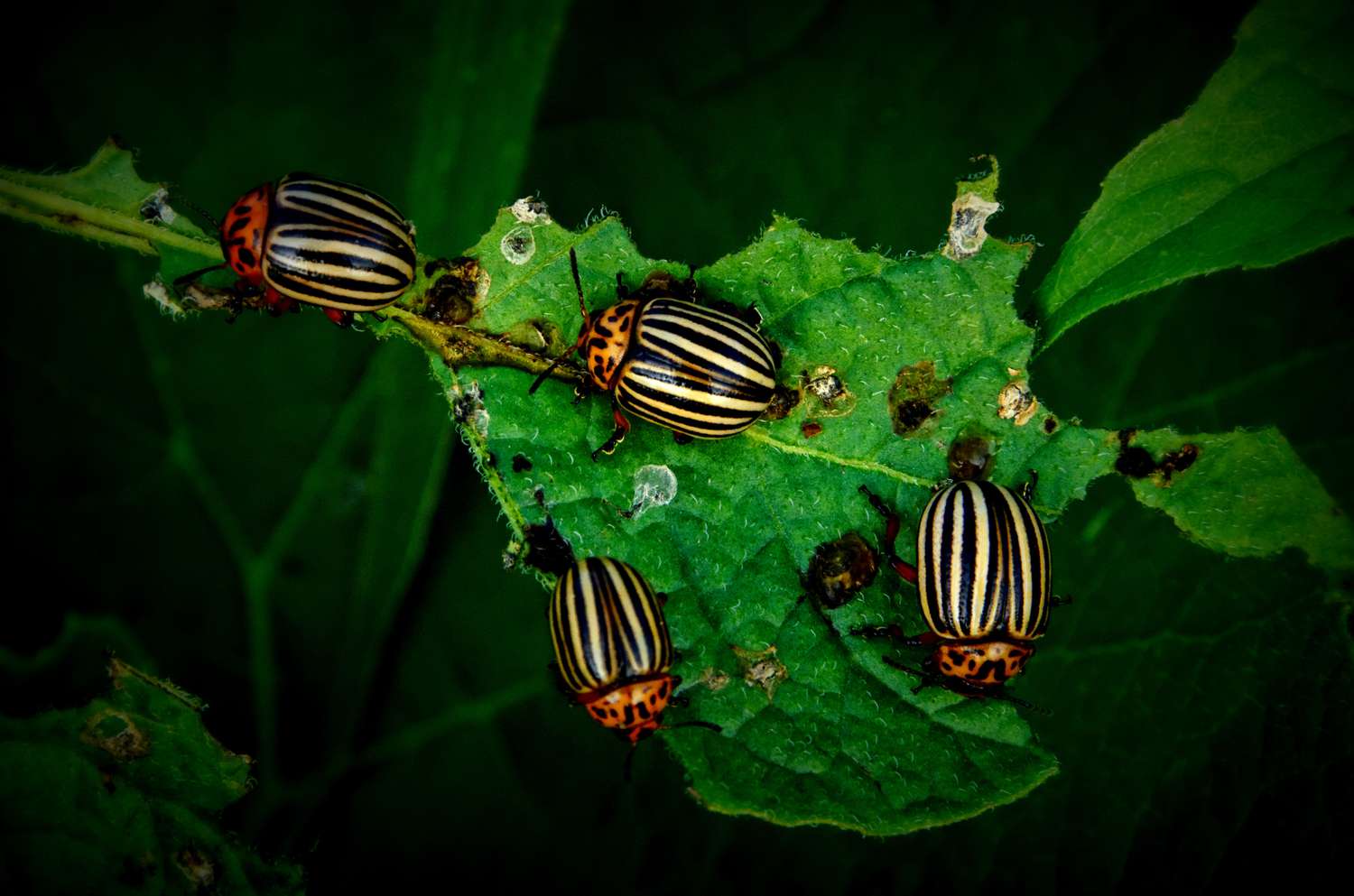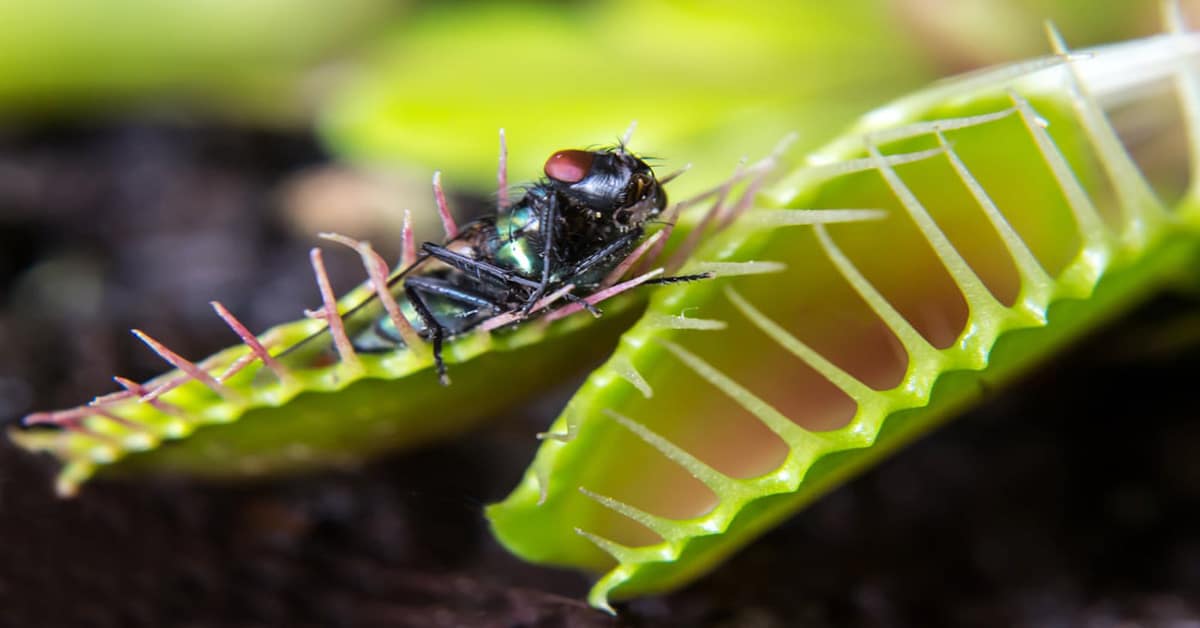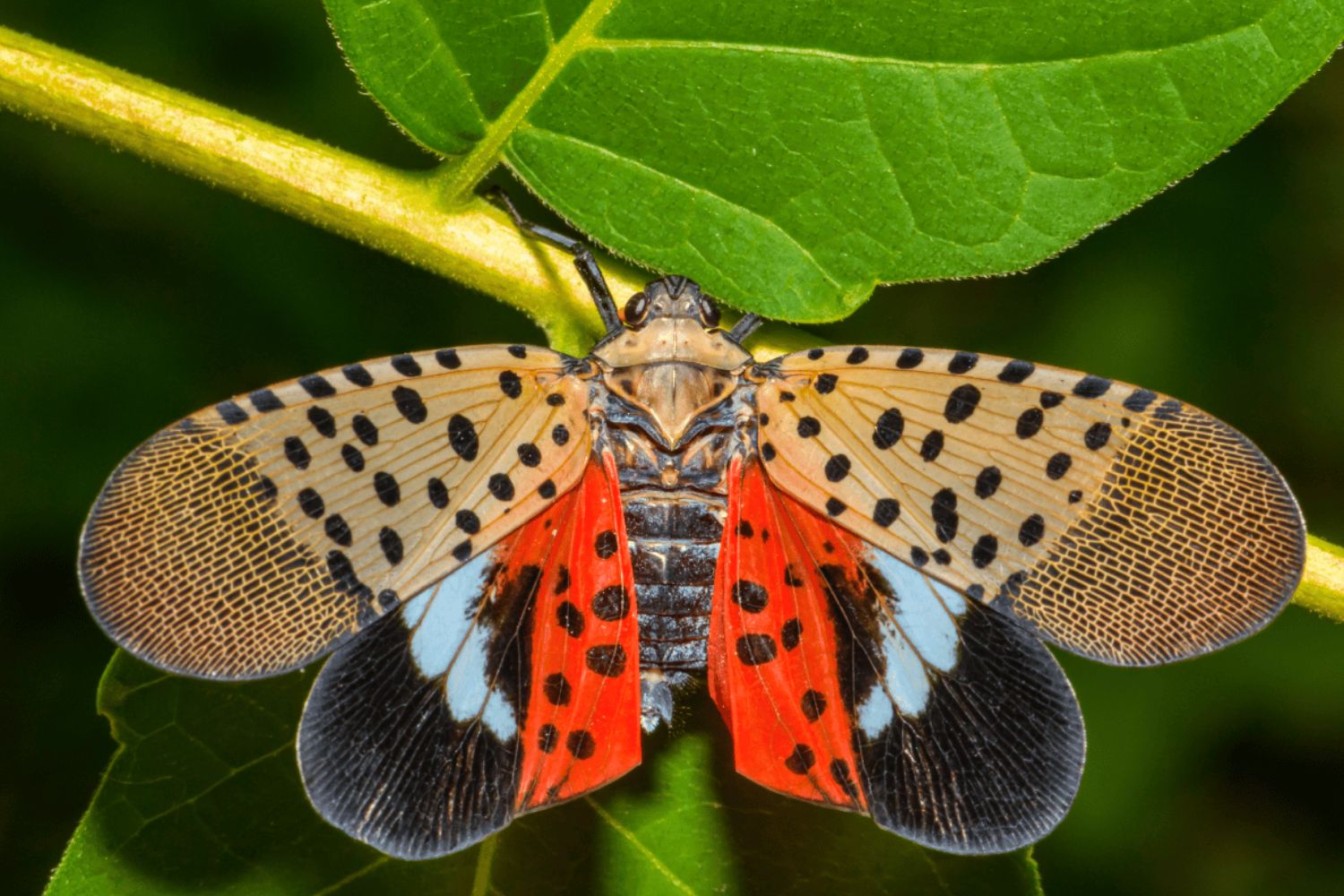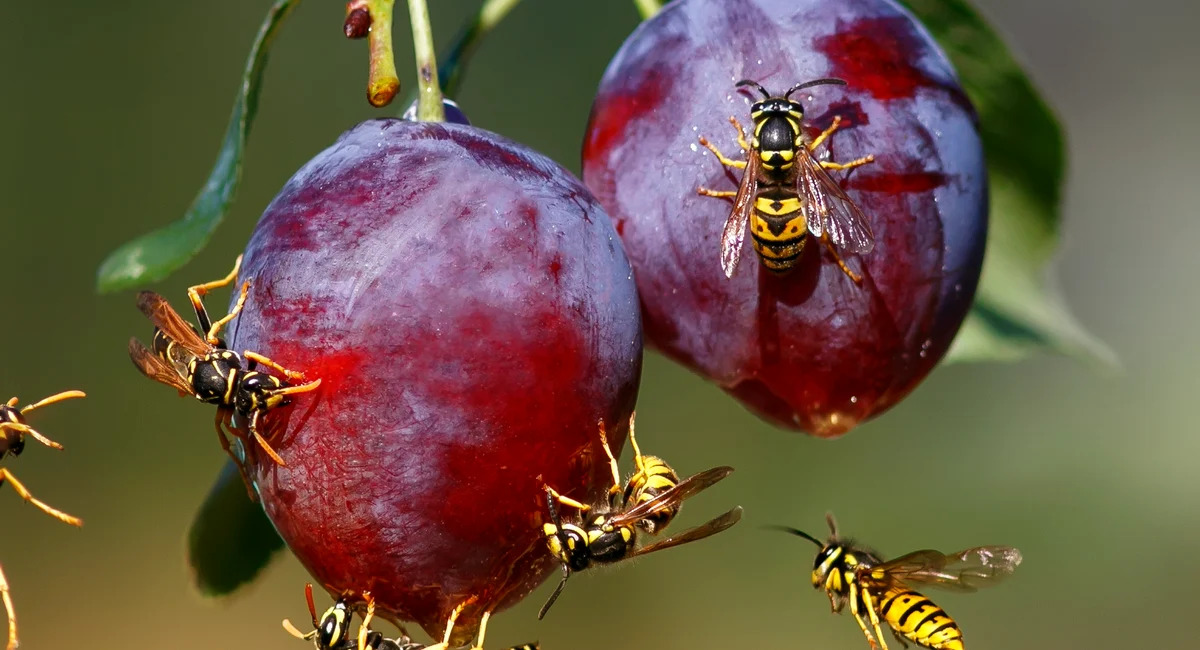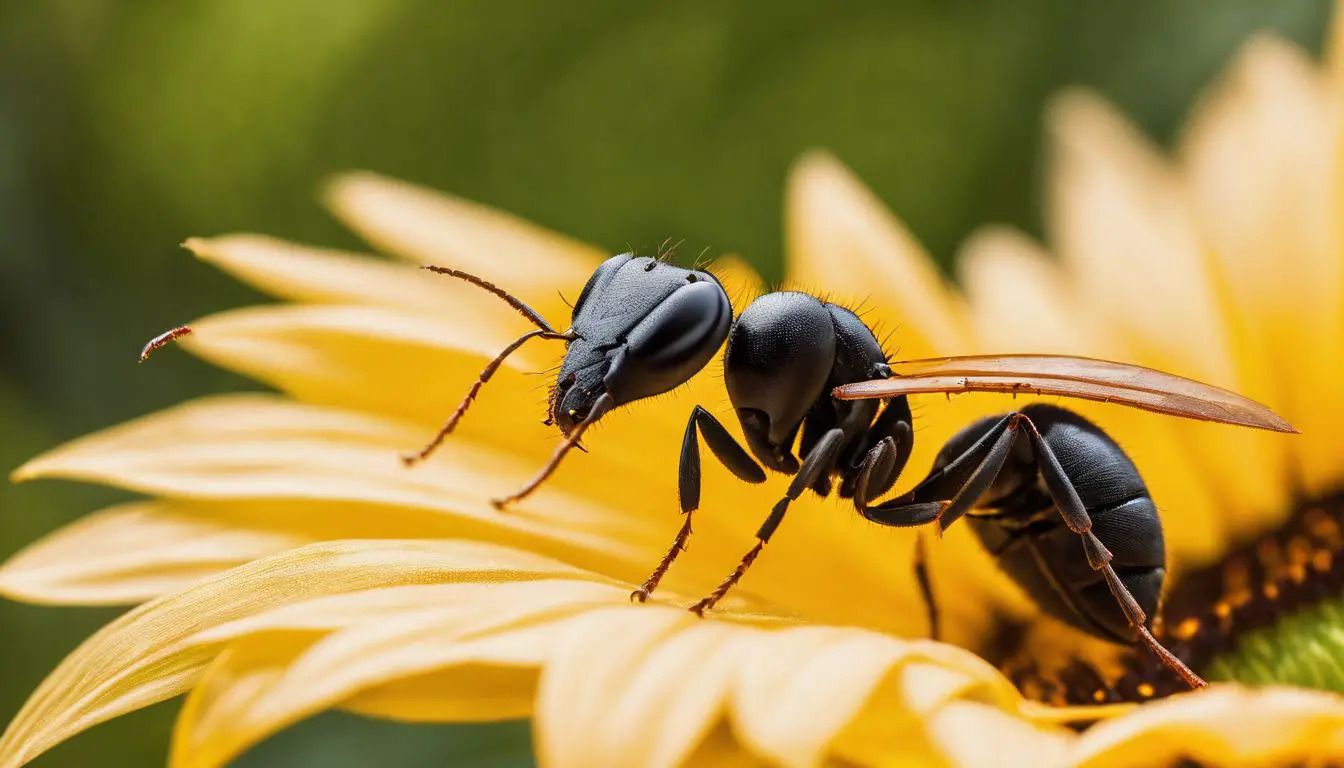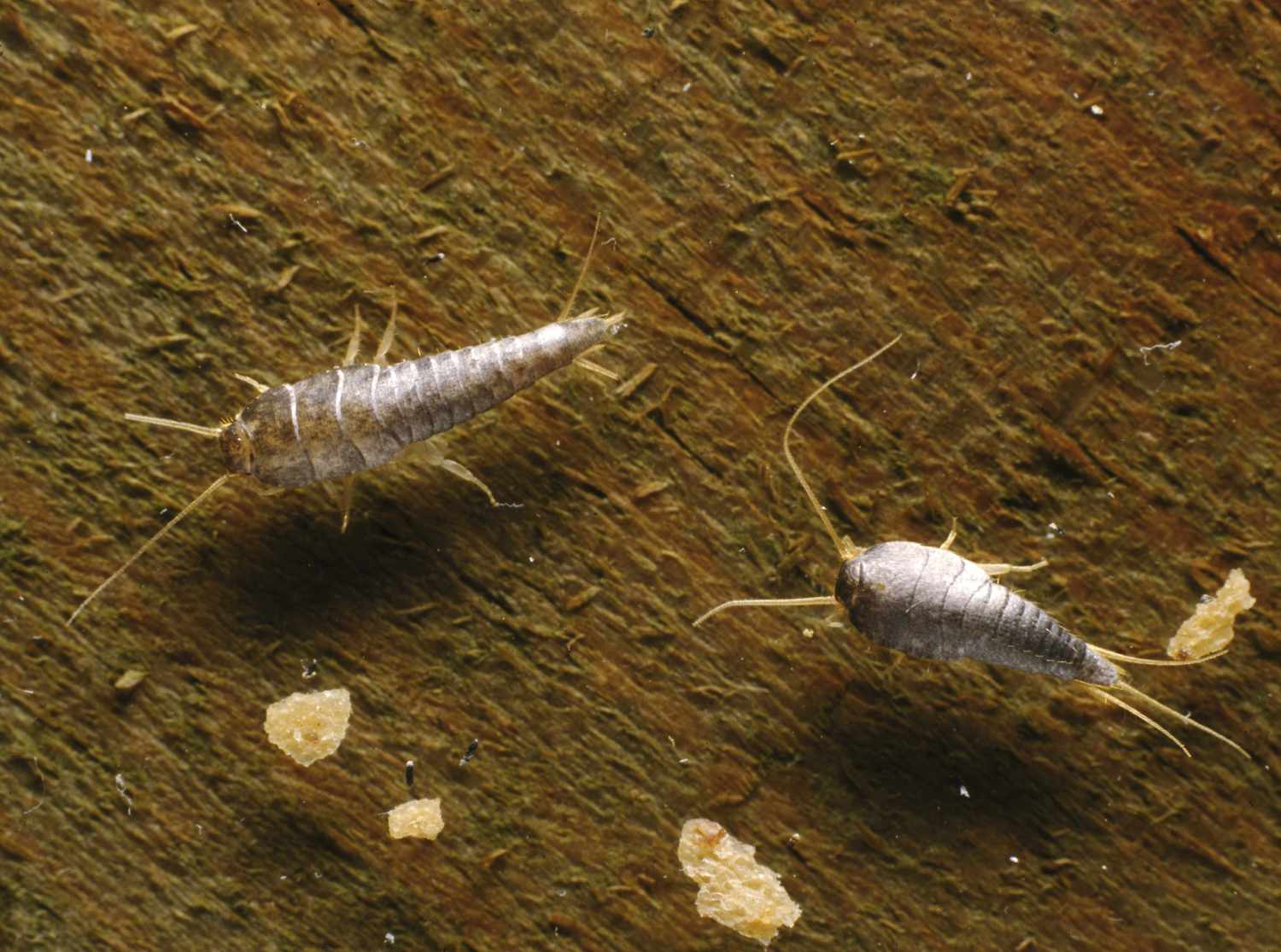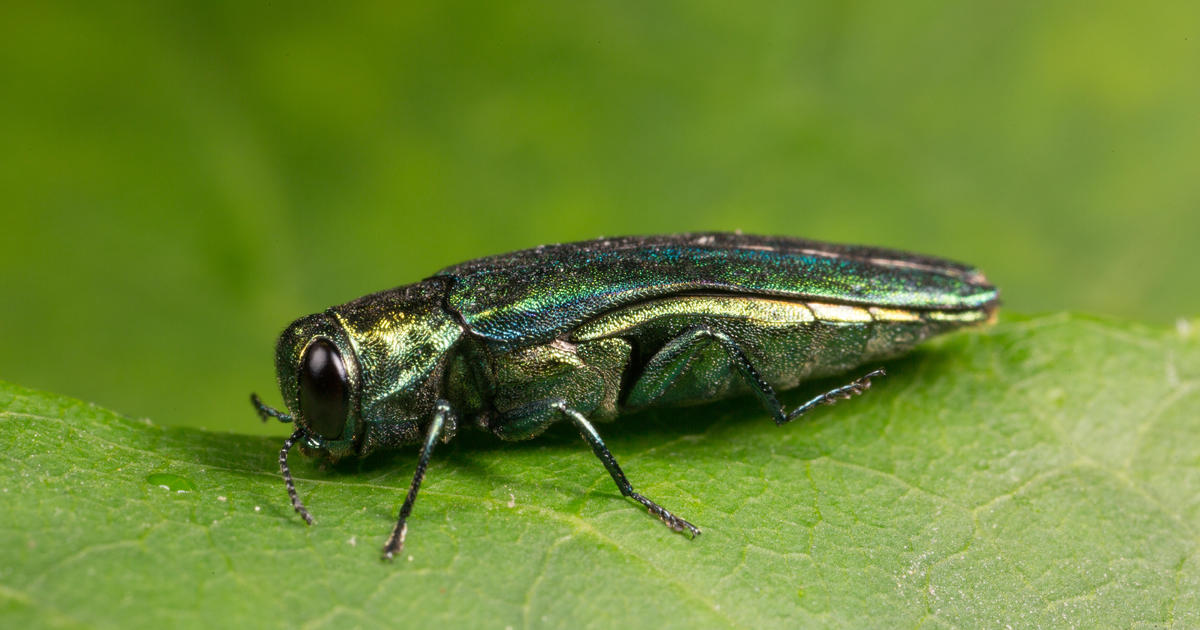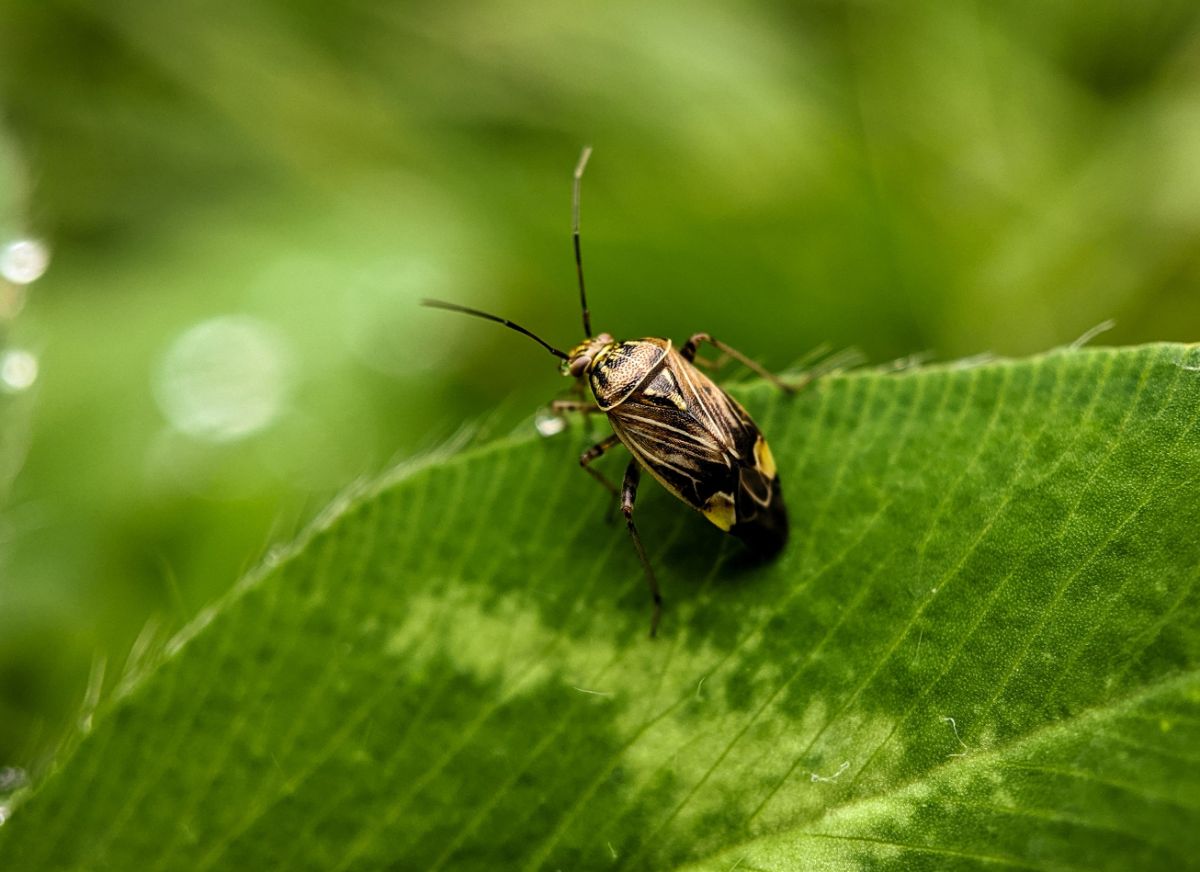Home>Gardening News and Trends>Latest News>What Insects Eat Mosquitoes
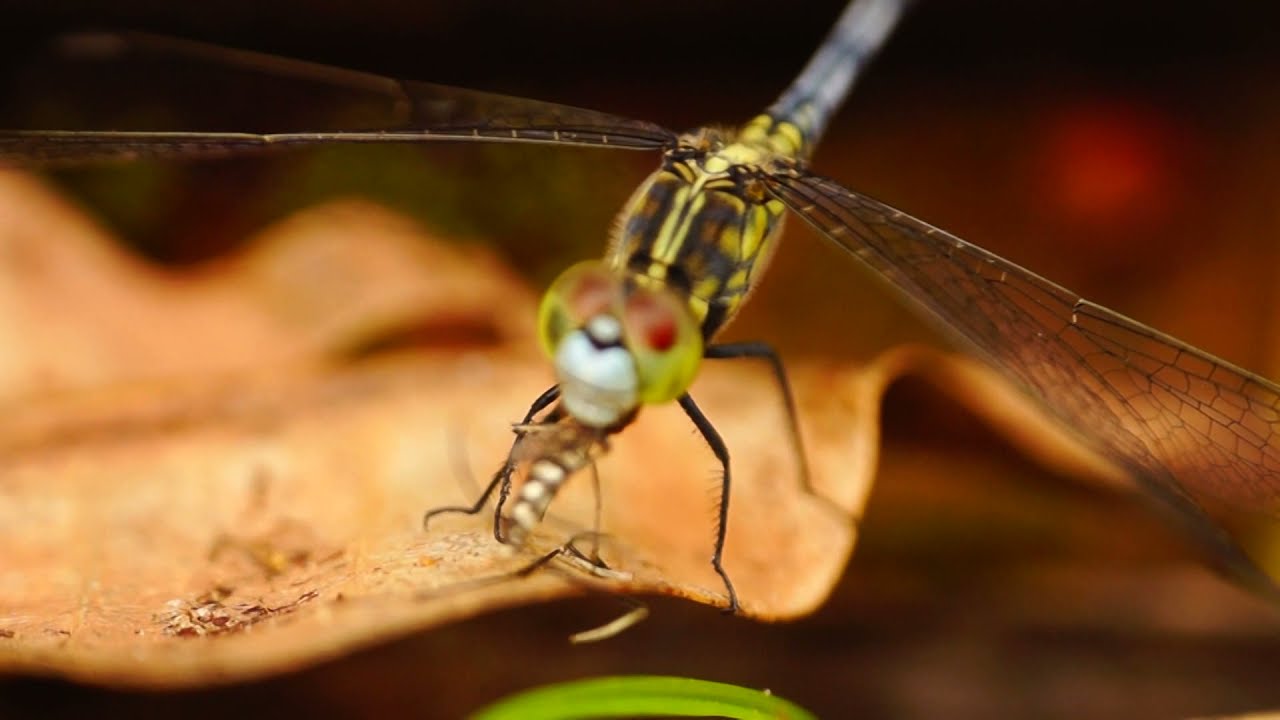

Latest News
What Insects Eat Mosquitoes
Modified: January 22, 2024
Discover the latest news on what insects eat mosquitoes. Stay updated with the most effective natural predators that can help control mosquito populations.
(Many of the links in this article redirect to a specific reviewed product. Your purchase of these products through affiliate links helps to generate commission for Chicagolandgardening.com, at no extra cost. Learn more)
Table of Contents
Introduction
Mosquitoes are not only annoying pests that buzz around and leave itchy bites, but they also pose a serious health risk as carriers of diseases such as malaria, dengue fever, and Zika virus. Controlling mosquito populations is crucial to preventing the spread of these diseases and maintaining public health.
While there are several methods to control and reduce mosquito populations, one effective and natural approach is through predation. Many insect species, birds, bats, and even fish are known to feed on mosquitoes, keeping their populations in check.
Understanding the predators of mosquitoes and how they contribute to mosquito control can help us develop more effective and sustainable strategies for managing mosquito populations. In this article, we will explore some of the key predators of mosquitoes and how they play a role in controlling these pesky insects.
Through scientific studies and observations, researchers have shed light on the predators that feed on mosquitoes and their efficacy in controlling mosquito populations. By studying these natural predators, we can better understand their interactions with mosquitoes and leverage their potential to mitigate the spread of mosquito-borne diseases.
In the following sections, we will delve into the various types of insect predators, birds, bats, dragonflies, damselflies, spiders, and fish that are known to prey on mosquitoes. Each of these predators contributes to mosquito control in different ways, making them important allies in our battle against these disease-carrying pests.
Scientific Studies on Mosquito Predators
Scientists have conducted numerous studies to better understand the role of predators in controlling mosquito populations. These studies have provided valuable insights into the effectiveness of different predators and their potential for mosquito control.
One notable study conducted by researchers at the University of California, Santa Cruz, focused on the impact of mosquito predators on the transmission of diseases such as West Nile virus. The study found that mosquito predators, particularly birds and bats, play a significant role in reducing mosquito populations and interrupting disease transmission cycles.
Another study published in the journal EcoHealth examined the predation rates of various insect predators, including dragonflies, damselflies, and spiders, on mosquito larvae. The results showed that these predators can consume large numbers of mosquito larvae, thereby reducing the overall mosquito population in their habitats.
Furthermore, a study conducted by scientists at the University of Florida demonstrated the effectiveness of mosquito-eating fish in controlling mosquito populations in freshwater habitats. The researchers found that certain fish species, such as Gambusia affinis (also known as mosquito fish) and certain species of killifish, can consume significant quantities of mosquito larvae and pupae, effectively reducing mosquito numbers.
These studies highlight the important role that predators play in keeping mosquito populations in check. By targeting mosquito larvae and adults, these predators help to reduce the number of mosquitoes that are capable of transmitting diseases to humans and animals.
However, it’s important to note that the effectiveness of predator-based mosquito control methods can vary depending on factors such as the species composition of predators, habitat characteristics, and the presence of alternative prey. Additionally, the success of predator-based control measures may be influenced by other factors such as climate change and habitat destruction.
Overall, these scientific studies provide evidence of the significant impact that mosquito predators can have on controlling mosquito populations. By understanding the interactions between mosquitoes and their natural predators, we can develop more targeted and sustainable approaches to mosquito control, ultimately reducing the risk of mosquito-borne diseases.
Insect Predators that Feed on Mosquitoes
Insects have long been known to be voracious predators of mosquitoes. These small but mighty creatures play a crucial role in keeping mosquito populations in check. Let’s explore some of the common insect predators that feed on mosquitoes.
Dragonflies and damselflies are among the most well-known mosquito predators. These agile and acrobatic insects have a voracious appetite for mosquitoes, both in their larval and adult stages. Dragonfly and damselfly larvae, known as nymphs, live in water and actively hunt mosquito larvae, consuming large quantities of them. When they reach adulthood, dragonflies and damselflies continue to feed on mosquitoes, capturing them in mid-air with their impressive flying and hunting skills.
Spiders also play a crucial role in controlling mosquito populations. While spiders may not exclusively feed on mosquitoes, they are opportunistic predators that capture mosquitoes when given the chance. With their intricate webs and skilled hunting techniques, spiders are able to trap and devour mosquitoes that are unfortunate enough to come into contact with their webs or hunting grounds.
Another group of insect predators that feed on mosquitoes are certain species of beetles, including water beetles and ground beetles. Water beetles, such as the predaceous diving beetle, are skilled swimmers that actively hunt mosquito larvae and other aquatic insects. Ground beetles, on the other hand, forage on land and are known to consume adult mosquitoes, helping to reduce their numbers in outdoor environments.
Ants are also known to prey on mosquitoes, although they may not be as effective as other insect predators. Ants primarily target mosquito eggs and larvae, but they may also scavenge on dead adult mosquitoes. While ants can contribute to mosquito control to some extent, their impact may be limited due to their small size and slower predation rates compared to other predators.
These insect predators are important allies in our battle against mosquitoes. By preying on mosquito larvae and adults, they help to reduce mosquito populations naturally and provide a valuable ecosystem service. Incorporating these predator species into our mosquito control strategies can offer a more sustainable and environmentally friendly approach to managing mosquito populations.
Birds that Prey on Mosquitoes
Birds play a significant role in keeping mosquito populations in check by preying on these pesky insects. Many bird species have evolved to include mosquitoes as part of their diet, making them effective natural predators. Let’s explore some of the birds that feed on mosquitoes.
Swallows are one of the most well-known mosquito predators. These agile birds are adept at catching mosquitoes on the wing, swooping through the air with incredible speed and precision. With their wide mouths and strong flight abilities, swallows can consume large numbers of mosquitoes in a single day, helping to reduce mosquito populations in their habitats.
Another bird species known for its mosquito-eating behavior is the purple martin. Purple martins are migratory birds that return to North America each spring to breed. These birds have a diet that consists largely of flying insects, including mosquitoes. They are often attracted to birdhouses or special purple martin houses, where they can nest and thrive while contributing to mosquito control.
Many other bird species also consume mosquitoes as part of their diet. Warblers, flycatchers, and nighthawks are known to catch and consume mosquitoes during their feeding activities. Birds that forage in wetland or marsh habitats, such as herons, egrets, and kingfishers, also feed on mosquitoes and other aquatic insects.
It’s important to note that while birds do feed on mosquitoes, they typically do not rely solely on them as a food source. Birds have diverse diets and consume a variety of insects, arthropods, fruits, and seeds. However, their consumption of mosquitoes, particularly during the breeding season when mosquitoes are abundant, can have a significant impact on reducing mosquito populations.
Protecting and preserving bird habitats is crucial for maintaining healthy ecosystems and promoting natural mosquito control. By providing suitable nesting sites, protecting wetland areas, and minimizing the use of chemical pesticides, we can create environments that support bird populations and their important role in controlling mosquitoes.
Overall, birds play a vital role in keeping mosquito populations in check through their feeding activity. By including bird conservation efforts in our mosquito control strategies, we can harness the natural predation abilities of these feathered friends and promote a more balanced and sustainable ecosystem.
Bats as Natural Mosquito Control
Bats are often misunderstood and feared creatures, but they play a crucial role in natural mosquito control. These nocturnal mammals have an extraordinary appetite for mosquitoes, making them valuable allies in the battle against these disease-carrying pests.
Bats have remarkable hunting abilities, relying on echolocation to navigate and locate their prey in the dark. They emit high-frequency sounds that bounce off objects and return as echoes, allowing bats to accurately pinpoint the location of mosquitoes and other flying insects. Once located, bats swoop in and snatch mosquitoes out of the air with their nimble flight and sharp claws.
Studies have shown that bats can consume astonishing amounts of mosquitoes each night. Some species, such as the little brown bat and the big brown bat, can consume up to a thousand mosquitoes in just one hour of feeding. Their voracious appetite for mosquitoes helps to suppress mosquito populations and reduce the risk of mosquito-borne diseases in their habitats.
While bats do feed on mosquitoes, it’s important to note that mosquitoes are not their sole food source. Bats have diverse diets and also consume other insects, such as moths, beetles, and flies. However, the presence of mosquitoes in their diet is significant, especially as mosquitoes often breed in areas near water sources where bats tend to forage.
Creating bat-friendly environments can encourage these natural mosquito predators to thrive. Providing bat houses or bat boxes can offer bats suitable roosting sites where they can rest during the day and raise their young. Planting native vegetation and maintaining natural habitats can attract insects, including mosquitoes, which in turn attract bats to the area.
It’s important to remember that bats are protected species in many regions due to their ecological importance. They are beneficial animals that provide valuable pest control services, including mosquito control. By promoting bat conservation and understanding their vital role in keeping mosquito populations in check, we can embrace bats as valuable partners in natural pest management.
In summary, bats are efficient predators of mosquitoes and offer a natural and sustainable solution to mosquito control. By supporting bat conservation efforts and creating bat-friendly habitats, we can harness the mosquito-control abilities of these fascinating creatures and promote a healthier ecosystem.
Dragonflies and Damselflies: Efficient Mosquito Hunters
Dragonflies and damselflies are predatory insects that are highly effective at hunting and consuming mosquitoes. These remarkable creatures have earned a reputation as efficient mosquito hunters and contribute significantly to natural mosquito control.
Both dragonflies and damselflies are equipped with excellent flying and hunting skills. They have large compound eyes that provide them with exceptional vision, allowing them to spot and track mosquitoes with precision. Additionally, their elongated bodies and transparent wings enable them to maneuver swiftly and catch mosquitoes in mid-air.
Dragonflies and damselflies have a two-stage life cycle, with an aquatic nymph stage and a flying adult stage. During their nymph stage, which can last from a few months to several years, they reside in freshwater habitats and actively hunt mosquito larvae. The nymphs can consume substantial quantities of mosquito larvae, significantly reducing mosquito populations in these habitats.
Once they reach their adult stage, dragonflies and damselflies continue to prey on mosquitoes and other flying insects. They are incredibly agile fliers, capable of flying backwards, hovering, and changing direction quickly. This agility makes them formidable predators of mosquitoes, as they can swiftly capture these insects while in flight.
Dragonflies and damselflies have an insatiable appetite for mosquitoes, as well as other small insects such as gnats and flies. They are attracted to areas with abundant flying insects, including areas with standing water where mosquitoes breed. By actively hunting mosquitoes throughout their life cycle, dragonflies and damselflies provide effective and natural mosquito control.
Conservation efforts that focus on preserving the natural habitats of dragonflies and damselflies are essential for maintaining their populations and maximizing their mosquito control capabilities. Ensuring the availability of suitable freshwater habitats, such as ponds and wetlands, is crucial for their nymphs to thrive and prey on mosquito larvae.
Dragonflies and damselflies are not only efficient mosquito hunters but also beautiful and fascinating insects. Their vibrant colors and delicate wing patterns make them a delight to observe in nature. By appreciating their ecological role and supporting their conservation, we can harness their mosquito-control prowess and contribute to a healthier and more balanced ecosystem.
Spiders and Their Role in Mosquito Control
Spiders are often associated with their ability to spin intricate webs, but they also play a significant role in natural mosquito control. These eight-legged arachnids are adept hunters that contribute to reducing mosquito populations in various ways.
One of the most notable ways that spiders control mosquitoes is through their web-building behavior. Many spider species construct intricate webs that serve as natural traps for flying insects, including mosquitoes. When mosquitoes become entangled in the sticky threads of a spider’s web, the spider quickly immobilizes and consumes them.
While not all spider species specifically target mosquitoes, they are opportunistic predators that will capture any small insect that becomes ensnared in their webs. However, some spider species have been observed to exhibit preferences for hunting mosquitoes due to their abundance and vulnerability as flying insects.
Aside from web-building spiders, there are also hunting spiders that actively pursue and capture prey, including mosquitoes. These spiders do not rely on webs but instead use their speed, agility, and venomous bites or stings to subdue their victims. Hunting spiders are often found in outdoor environments and can play a crucial role in controlling mosquito populations.
Not all mosquito control efforts by spiders involve capturing adult mosquitoes. Some spider species, such as the jumping spider, actively seek out and prey on mosquito larvae, which tend to reside in stagnant water sources. These spiders have been observed to feed on mosquito larvae found in ponds, marshes, or other water areas, helping to reduce the number of mosquitoes that reach adulthood.
Creating a hospitable environment for spiders can encourage their predatory activities and contribute to natural mosquito control. Avoiding the use of chemical insecticides not only preserves the spider population but also prevents potential harm to other beneficial insects that spiders may prey upon. Providing hiding places, such as garden vegetation or natural crevices, can also support spider populations.
While some people may have a fear of spiders, it is important to remember that these creatures are valuable contributors to the ecosystem. Their role in controlling mosquito populations, along with their interactions with other insects, helps to maintain ecological balance. By appreciating the ecological importance of spiders and promoting their conservation, we can harness their natural predation abilities and reduce our reliance on chemical mosquito control methods.
Mosquito Predation by Fish
Fish are not only enjoyable to observe in aquariums or ponds, but many species also serve as natural predators of mosquitoes. These aquatic creatures play a crucial role in controlling mosquito populations by preying on mosquito larvae and reducing their numbers in freshwater habitats.
Several species of fish have been identified as effective mosquito predators. One of the most well-known species is the mosquito fish (Gambusia affinis). These small freshwater fish have a voracious appetite for mosquito larvae and are widely used in mosquito control efforts around the world. Mosquito fish are particularly effective in standing water sources such as ponds, ditches, and stagnant pools.
In addition to mosquito fish, other fish species, such as certain types of killifish and guppies, are also known to consume mosquito larvae. These fish actively forage in freshwater environments, searching for mosquito larvae to prey upon. They use suction feeding or specialized mouthparts to capture and consume the larvae, thus helping to reduce mosquito populations.
The predation of mosquito larvae by fish is not limited to stagnant water sources. Some species of fish, such as the top minnow (Fundulus spp.), are able to adapt to different water conditions, including flowing streams or channels. These fish actively hunt mosquito larvae in these habitats, effectively reducing the mosquito population in those areas.
It is important to note that not all fish species are effective mosquito predators. Some fish, such as goldfish or koi, may consume mosquito larvae to some extent, but their predation rates may not be as high as those of dedicated mosquito predators. Additionally, certain fish species may prefer alternative food sources, which can impact their effectiveness in controlling mosquito populations.
Introducing fish into bodies of water as a biological control method requires careful consideration to prevent potential ecological imbalances. It is crucial to select fish species that are compatible with the ecosystem and habitat. Native fish species are often the preferred choice, as they are more likely to have evolved with the local mosquito population and are better adapted to the surrounding environment.
When implementing fish-based mosquito control strategies, it is essential to consider the water conditions, temperature, and availability of suitable habitats for the fish. Monitoring and assessing the mosquito population, as well as the fish population dynamics, are important to ensure the effectiveness of the control measure.
In summary, fish play a vital role in controlling mosquito populations by feeding on mosquito larvae in freshwater habitats. Selecting appropriate fish species and implementing responsible management practices can contribute to sustainable and effective mosquito control, reducing the risk of mosquito-borne diseases and creating healthier environments.
Conclusion
The presence of mosquitoes can be a nuisance and a significant health concern due to their ability to spread diseases. However, nature has provided us with a diverse array of predators that play a vital role in controlling mosquito populations. From insects to birds, bats, dragonflies, damselflies, spiders, and fish, these natural predators actively hunt and consume mosquitoes at various stages of their life cycle.
Scientific studies have demonstrated the efficacy of these mosquito predators in reducing mosquito populations and interrupting disease transmission cycles. Dragonflies and damselflies are fast and agile hunters that consume mosquito larvae and adults, while spiders capture mosquitoes in their intricately spun webs. Birds, such as swallows and purple martins, swoop through the air to feed on mosquitoes, and bats utilize their echolocation abilities to locate and consume large quantities of mosquitoes each night.
Additionally, fish species like mosquito fish and certain types of killifish are adept at preying on mosquito larvae in freshwater habitats. All these predators contribute to keeping mosquito populations in check and the risk of mosquito-borne diseases at bay.
It is crucial to understand and appreciate the ecological role of these predators in natural mosquito control. By promoting their conservation and creating habitats that support their populations, we can harness their abilities and reduce our reliance on chemical pesticides for mosquito control.
However, it’s important to recognize that while these natural predators play a significant role in controlling mosquito populations, they may not completely eradicate mosquitoes on their own. Employing integrated methods that combine predator conservation, habitat management, and other mosquito control strategies can offer the most effective and sustainable approach.
In conclusion, the engagement of natural predators in mosquito control is an invaluable asset. By understanding their role, conserving their habitats, and implementing proactive measures, we can coexist harmoniously with these predators while mitigating the nuisance and potential health risks associated with mosquitoes.

